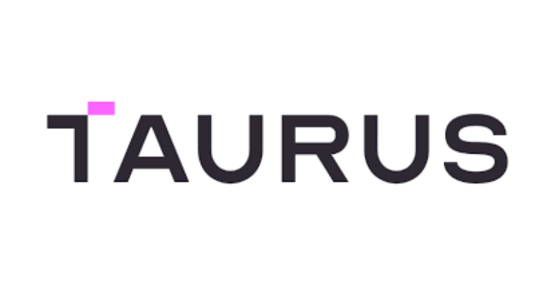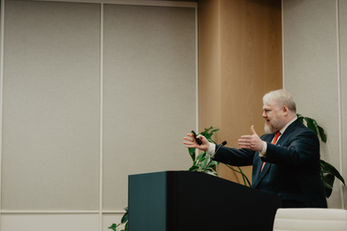


Will Tokenisation be the nemesis of exchanges or the re-making of them?
March 13, 2025
1 Day Event: 8.30am to 8.00pm

For more information contact:
Agenda
08.30
Registration Opens with coffee and biscuits
09.15 to 09.30
Opening Address: Future of Finance and Gold Sponsor
09.30 to 09.40
Keynote Address
09.45 to 10.45
Panel 1: Are tokenisers making a mistake in choosing to ignore the conventional public equity markets?
(45 minutes panel discussion and time for questions and turn around)
Topics and Questions:
-
How important are the public equity markets to traditional exchanges in developed markets?
-
Are the public equity markets too efficient to need tokenisation?
-
Will cash on-chain (as tokenised deposits or central bank digital currency (CBDC)) catalyse native token issuance and atomic settlement?
-
Are digitally “native” equity tokens bound to disrupt equity issuance and trading?
-
Are the public equity markets the fastest (or even the only) route to achieving scale in token markets?
-
Could tokenisation revive the Initial Public Offering (IPO) market?
-
Is regulation a genuine constraint on tokenised equity or an excuse for inaction?
-
Can blockchain technology match the speed and scale traditional equity markets have achieved?
-
Must blockchain technology transform public equity markets completely or can it add efficiency to some parts of the process without changing everything?
-
Will sell-side intermediaries support exchanges that embrace tokenisation by investing in the necessary technology and connectivity?
-
How important to success is interoperability between blockchain protocols and between blockchain protocols and traditional exchanges?
Panellist:
Rita Martins – Head of Product Ecosystem and Digital Assets at London Stock Exchange Group
Reyer Kooy - Global Head of Operations – Digital at Apex Group
Remo Glauser - Product Head in Tokenisation at Sygnum Bank
Prasanth Kalangi - Founder and CEO at Zoniqx
Richard Shade - Chief Operating Officer at Archax
Moderated by Dominic Hobson, Co-Founder of Future of Finance
10.45 to 11.30
Coffee Break and Networking
11.30 to 12.30
Panel 2: Are tokenisers currently focused on alternative assets for want of something better?
(45 minutes panel discussion and time for questions and turn around)
Topics and Questions:
-
Do conventional exchange projects to help private companies raise capital (e.g., Nasdaq Private Market, London Stock Exchange Group (LSEG) PISCES and Johannesburg Stock exchange (JSE) Private Placements) make tokenisation unnecessary?
-
Can token exchanges compete (on cost) with the private equity industry to fund private companies?
-
What can tokenisation do for alternative or “real-world” asset classes (private equity, private credit, privately managed funds, infrastructure, real estate, carbon credits, collectibles, commodities etc.) that conventional securitisation cannot?
-
Does the real opportunity in private equity tokenisation lie in investor relations?
-
What is the difference between token platforms for private equity issues and crowd-funding platforms?
-
What is the real inefficiency in alternative assets (e.g. on-boarding of investors, valuations of assets, lifecycle event management) that exchanges can address?
-
Can intrinsically illiquid asset classes be made more liquid through tokenisation (e.g., via market makers and/or Automated Market Makers (AMMs))?
-
Are secondary markets in alternative asset classes an unachievable goal?
-
Is the real opportunity in alternative asset classes to integrate them with the conventional equity, bond and funds markets at the operational level?
-
Several infrastructural service providers to the alternatives market have found it hard to build a business and even one relatively successful exchange has pivoted to selling to technology instead. Are privately managed asset markets too hard to scale?
-
Which side of the capital markets has failed most to rise to the opportunity in alternative asset classes: issuers or investors?
Panellist:
Dr Robert Barnes – CEO at BPX Exchange
Thomas Labenbacher – CEO at Founder at Assetera
Hirander Misra – Chairman and CEO of GMEX Group
Marcus van Abbé - Head of Digital Market Infrastructures at R3
Rita Martins - Head of Product Ecosystem, Digital Assets, at the London Stock Exchange Group (LSEG)
Moderated by Massimo Butti, Independent
12.30 to 13.30
Lunch and Networking
13.30 to 14.30
Panel 3: Are retail investors the key to digital assets trading taking off?
(45 minutes panel discussion and time for questions and turn around)
Topics and Questions:
-
Are institutional investors too focused on income and passive funds to support companies that need capital?
-
Are institutional investors waiting for a degree of regulatory certainty that will never arrive?
-
What does the experience of cryptocurrency exchanges in selling wrapped versions of blue-chip stocks prove about the retail investor appetite for tokenised securities?
-
Most traditional exchanges have forfeited retail business. Should they – and can they -recapture it?
-
Does history show that retail investors follow institutional pioneers or vice-versa?
-
How can digital asset exchanges avert degeneration into a model in which retail investors provide the money and professional investors make the profits?
-
Does the cryptocurrency precedent prove that exchanges must trade cryptocurrencies to attract retail investors?
-
How effective has the lowering of minimum subscriptions amounts for funds proved in attracting retail investors?
-
Is fractionalisation working?
-
Which retail investors are excluded by the need to be “accredited”?
-
Can issuers as well as investors be grown out of the cryptocurrency markets?
Panellist:
Benjamin Dean - Director of Digital Assets Strategy at WisdomTree
Katie Richards - Head of New Markets and Product Development at Incore Bank
Murat Ögat - Co-founder and CEO at Aktionariat
Pat LaVecchia - CEO and Founder of Oasis Pro
Moderated by Bob Currie, Contributing Editor at Future of Finance
14.30 to 15.30
Panel 4: Are exchanges relevant if tokens are traded peer-to-peer?
(45 minutes panel discussion and time for questions and turn around)
Topics and Questions:
-
Are institutional investors too focused on income and passive funds to support companies that need capital?
-
Are institutional investors waiting for a degree of regulatory certainty that will never arrive?
-
What does the experience of cryptocurrency exchanges in selling wrapped versions of blue-chip stocks prove about the retail investor appetite for tokenised securities?
-
Most traditional exchanges have forfeited retail business. Should they – and can they -recapture it?
-
Does history show that retail investors follow institutional pioneers or vice-versa?
-
How can digital asset exchanges avert degeneration into a model in which retail investors provide the money and professional investors make the profits?
-
Does the cryptocurrency precedent prove that exchanges must trade cryptocurrencies to attract retail investors?
-
How effective has the lowering of minimum subscriptions amounts for funds proved in attracting retail investors?
-
Is fractionalisation working?
-
Which retail investors are excluded by the need to be “accredited”?
-
Can issuers as well as investors be grown out of the cryptocurrency markets?
Panellist:
Ben Brophy - Head of Blockchain at Fidelity International
Bob Ejodame - Vice President, Capital Markets, at INX
Lucas Bruggeman - CEO and President of the Board at BX Swiss Exchange
Massimo Butti - an independent adviser to several companies involved in digital assets
Severin Kranz - Head of Business Development at 21X
Moderated by Dominic Hobson, Co-Founder of Future of Finance
15.30 to 16.15
Coffee Break and Networking
16.15 to 17.15
Panel 5: What is the future of exchanges?
(45 minutes panel discussion and time for questions and turn around)
Topics and Questions:
-
Why have most traditional stock exchanges chosen to do nothing about tokenisation?
-
Is the tokenisation threat a problem for developed market exchanges only, implying that emerging and developing economy market exchanges can carry on as normal with listing and trading?
-
Have the exchanges that have invested in tokenisation made a mistake in focusing on market education, hosting flagship issues and making the technology user-friendly rather than building an eco-system?
-
Have Singapore and Switzerland obtained a competitive advantage by becoming the most successful jurisdictions at hosting digital asset exchanges?
-
Are the corporate bond markets a major opportunity for exchanges or are they a primary market issuance process opportunity only?
-
Is the debate between private and public blockchains now resolved in favour of public blockchains or are traditional exchanges still reluctant to operate public blockchains?
-
Will the exchange of the future be a “hybrid” of the traditional and the digital?
-
Will the exchange of the future charge subscription fees rather than transaction fees?
-
Has the relationship between economic growth and stock market growth broken down in developed economies?
-
Can exchanges provide neutral market infrastructures akin to the “common” blockchain platforms that host third party apps advocated by the Bank for International Settlements (BIS) and the International Monetary Fund (IMF)?
-
For exchanges, is the ability to raise capital and generate liquidity by concentrating transactional activity becoming less important than the manufacture and distribution of investment and investment-related products?
Panellist:
Michele Curtoni – Head of Strategy and Business at SDX
Vic Arulchandran – Head of Digital Product and Market Design at Deutsche Boerse
Martin Watkins – CEO at Montis Group
Max Heinzle - Founder and CEO of 21X
Yalini Isweran - Head of the Digital Launchpad at the Depository Trust & Clearing Corporation (DTCC)
Moderated by Dominic Hobson, Co-Founder of Future of Finance
17.15 to 20.00
Networking Drinks and Canapés































































